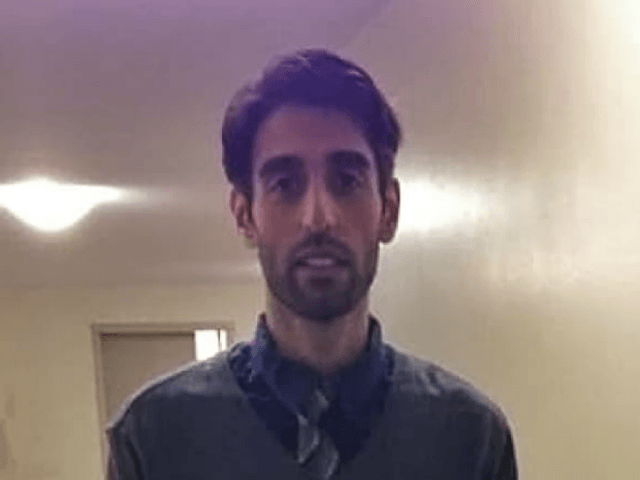The all-too-familiar second act of terrorist attacks and mass shootings played out in Toronto on Tuesday, as the police revealed Greektown shooter Faisal Hussain was previously taken into custody twice and has a long history of documented mental health issues.
According to a source in the police department who spoke with Canada’s Global News, Hussain was “fascinated with death and explosions,” liked “replica handguns,” and strongly identified with Batman’s archenemy the Joker.
Few details have been released about Hussain’s prior encounters with the authorities, except that both arrests reportedly occurred when he was under 18 years of age.
The Islamic State claimed responsibility for the Toronto rampage on Wednesday, saying 29-year-old Hussain was “a soldier of the Islamic State and carried out the attack in response to calls to target the citizens of the coalition countries.”
The claim was made through the ISIS “news” agency Amaq, which did not offer any evidence for its claim, such as the “martyrdom video” often made by ISIS terrorists before they launch suicide attacks. Terrorism analysts noted that while ISIS was relatively careful about claiming overseas attackers as its “soldiers” in the past, the terrorist group makes wilder claims now that its territory in Iraq and Syria is gone, and is more prone to identifying attackers who were merely “inspired by” its rhetoric as soldiers.
“At this stage, we have no evidence to support these claims,” Toronto Police Chief Mark Saunders said on Wednesday.
“We will continue to explore every investigative avenue including interviewing those who knew Mr. Hussain, reviewing his online activity, and looking into his experiences with mental health,” Saunders promised.
The office of Public Safety Minister Ralph Goodale flatly stated there is “no national security nexus” to Hussain’s attack.
On the other hand, a law enforcement source told CBS News on Tuesday that Hussain “visited Islamic State websites” and “may have expressed support for the terrorist group.” According to this source, the authorities are investigating reports he might have lived in Afghanistan or Pakistan at some point.
They are also investigating how Hussain obtained the handgun he used in the attack, a puzzling detail considering Canda’s tough gun laws and extensive background checks.
Hussain’s family said in a statement that his actions were “incomprehensible.” According to the family, he suffered from psychosis and received both medicine and therapy, but doctors were “unable to treat him.”
“While we did our best to seek help for him throughout his life of struggle and pain, we could never imagine that this would be his devastating and destructive end,” the family said.
Hussain’s friends and co-workers told reporters he showed no signs of mental illness, describing him as upbeat, hard-working, and “bubbly.” One of his friends, Aamir Sukhera, told the Global News that Hussain confided in him years ago and said he suffered from psychosis and depression, but displayed no dangerous behavior during their long acquaintance.
“I felt like an older brother but I guess I wasn’t. I feel bad too right now because I wish I had the ability to identify what triggered this behavior and I don’t,” said Sukhera.
To put it very bluntly, as Tarek Fatah did at the Toronto Sun on Wednesday, critics suspect the Canadian government is withholding important details on the shooting to conceal the role radical Islamist thought played in Hussain’s actions, and the media is helping because they would much rather use the shooting to pursue preferred hobgoblins such as gun control and toxic masculinity:
No sooner was it revealed that the Toronto mass murderer was a 29-year-old Muslim of Pakistani descent, ‘consultants’ and ‘experts’ lined up on various TV networks twisting themselves into halal pretzels, trying to avoid the elephant in the room staring at them — a Muslim hate crime.
Within hours CBC News obtained an unsigned letter purportedly from the killer’s family, stating the mass shooter Faisal Hussain had a lifelong struggle with “severe mental health challenges,” including “psychosis and depression.”
Thus the subject on the evening news became one of lack of funding of mental health and gun crime, painting the murderer himself as a victim with not even a hint of anger at the man who had declared war on a Toronto street of partygoers, killing two girls, 18 and 10. Never once did a single participant have the courage to raise the possibility of the killer being inspired by jihadi teachings that portray partying on streets by women as evil and satanic.
“There are questions that remain unanswered—like which mosque Hussain attended, who scrubbed his social media presence and how it was that his name was withheld until the family issued their polished statement,” Fateh concluded, referring to accusations that the Hussain family statement quoted above was prepared with the help of professional Muslim activists.
Faisal Hussain murdered 10-year-old Julianna Kozis and 18-year-old Reese Fallon on Sunday and injured 13 others before dying in a gunfight with police. Some reports indicate he shot himself, although that detail does not seem entirely certain at the time of this writing.

COMMENTS
Please let us know if you're having issues with commenting.